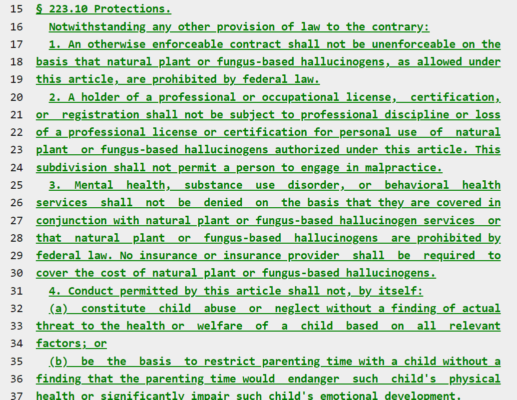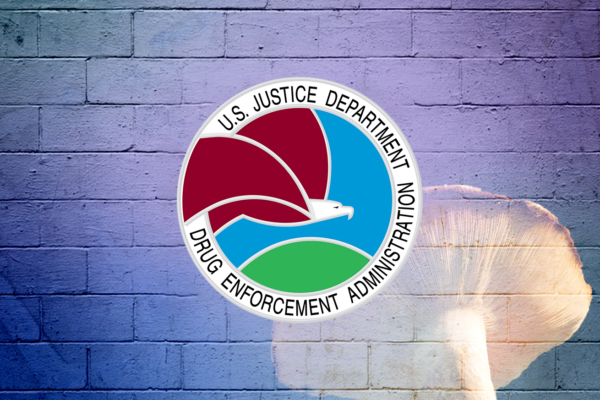
As the psychedelic revolution continues to spread across the US, New York lawmakers have thrown their hat in the ring and pre-filed a bill aiming to legalize certain natural psychedelics. It’s clear that legal reform is gaining ground when it comes to taking mushrooms out of the shadows and into mainstream awareness.
The bill seeks to amend some of the current laws in order to legalize natural plant- or fungus-based hallucinogens for adults. These changes would affect the Penal Law, Public Health Law, Labor Law, and Vehicle and Traffic regulations.
If passed, this would be one of the first major breakthroughs in 2023 regarding psychedelics legalization in U.S.
The new bill, which will be officially introduced this week, would:
- “Legalize adult possession and use of certain natural plant or fungus-based hallucinogens;
- Grant certain protections for individuals lawfully using such hallucinogens;
- Remove such hallucinogens from the list of schedule I controlled substances;
- Make related provisions.”
This proposal, backed by Assembly members Linda Rosenthal (D), Jo Anne Simon (D) and Karines Reyes(D), would modify existing state laws to allow individuals aged twenty-one or older the right to possess, use, grow, manufacture, analyze, give away as a gift exchange or share certain naturally occurring hallucinogenic plants and fungi.
The measure would legalize the use of some natural plant or fungus-based hallucinogens, including DMT, ibogaine, mescaline, psilocybin and psilocyn, recategorize them and eliminate their status as prohibited substances.
Additionally, the proposed law would grant people the right to provide or receive psychedelic services for either remuneration or not, and also enable religious organizations to utilize entheogens ceremonially.
To prevent any conflicts of interest, state and local law enforcement would be barred from assisting the federal government in enforcing laws surrounding controlled substances for activities that are legitimized by the state.
Protections

Section 223.10 of this measure puts several safeguards in place to protect individuals:
- Even if natural plant or fungi-based hallucinogens, as allowed by this stipulation, are illegal under federal law, that will not prevent any contract from being enforced.
- Professional or occupational license holders who use naturally-occurring plant and fungi based hallucinogens will be exempt from professional discipline and loss of their credentials.
- Mental health, substance use disorder, or behavioral health services cannot not be refused based on the inclusion of natural plant or fungus-based hallucinogen services simply because these substances are illegal according to federal law. However, insurance providers also have no obligation to fund for costs associated with natural plant or fungus-based hallucinogens.
- The measure legally authorizes patients to use the above mentioned natural plant medicines, and these substances will not be considered illicit nor disqualify patients from receiving medical treatment or insurance coverage.
- Employers would be prohibited from taking any adverse action against an employee who lawfully consumes psychedelics while off duty.
- Under this new bill, New York’s localities are prohibited from passing legislation criminalizing psychedelics; however, they can create laws and regulations that relate directly to natural plant or fungus-based hallucinogens in order to further the bill.
The presentation of the new bill is a sign that 2023 is set to be a breakthrough year in psychedelics reform, in part due to the progress made by decriminalization movements across America and voter support for psilocybin therapy in Oregon. Colorado recently became the second state to decriminalize psychedelics and legalize psilocybin therapy, a groundbreaking accomplishment that serves as evidence of the power of change at the state level. This incredible advancement was largely made possible by tireless and courageous activists who have fought for drug reform throughout our nation. With these developments, it looks like psychedelic use may soon become more socially acceptable than ever before.





